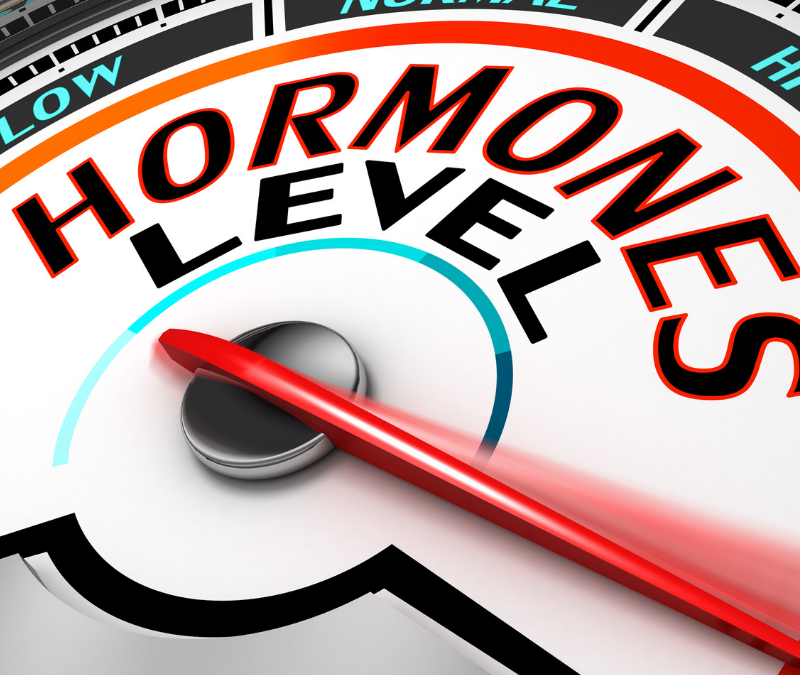THE HORMONE & WEIGHT LOSS STORY
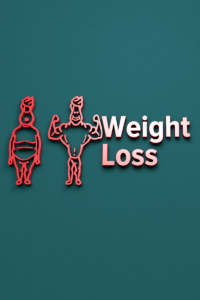
The same front story hits the news headlines – “obesity is on the increase”. But are we really tackling the problem of weight loss correctly. Rather than think calories, think hormones.
During the 1980’s, diet fads became popularised as celebrities promoted unhealthy diets which helped them achieve amazing physiques. A few weeks later, a tabloid photograph of the same celebrity relaxing on a beach several sizes larger appears all over the papers.
From weight watchers to the atkins, veganism to paleo, low-carb to high-fat, gluten-free to keto, low FODMAP to the zone diet and the cabbage soup diet to slimfast, all these diets without supplementation restrict the full spectrum of foods that hormones in the body need to function effectively.
While restriction of processed foods is highly supported, cutting out ‘real foods’ can have a damaging impact on the body and our relationship with food.
These restrictive diets are unsustainable and eventually, any initial weight loss is rapidly gained. We’ve all been there!
So how can we be achieve a natural body composition and feel happy and satiated when it comes to what we eat?
Well, it’s all about the relationship between our hormones and the foods we eat. Read on for the story of hormones and weight loss.
INSULIN AND GLUCAGON HORMONES
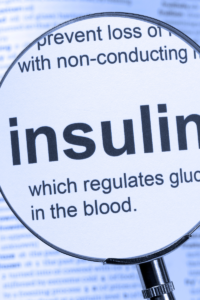
In our bodies, every physiological process is regulated by hormones. Hormones control our heart beat, sleep, stress levels and the urge to go the toilet. They regulate menstrual cycles, thyroid function, blood pressure, calcium and potassium levels, the production of red blood cells, child birth and growth. The list of functions generated by these amazing hormones is phenomenal.
One such amazing hormone is insulin.
The consumption of food triggers the pancreas to produce insulin.
Foods that contain carbohydrates are converted into glucose which is released into the bloodstream. The insulin instructs cells throughout the body to absorb glucose from the bloodstream. Some cells use glucose as instant energy. Liver, muscle and fat cells convert glucose into glycogen where it can be stored and easily accessed when required.
4-6 hours after eating, glucose levels in the blood are reduced.
This signals the pancreas to produce glucagon.
Glucagon instructs the liver and muscles to convert glycogen back into glucose. Glucose is released into the bloodstream. This is known as glycogenolysis.
Glucagon also stops the liver from consuming more glucose to keep sugar levels in the blood stable.
Glucagon also initiates a process called gluconeogenesis.
This the production of glucose from amino acid molecules (lactate, glycerol and glycogenic amino acids). Gluconeogenesis starts around 8 hours into fasting when liver glycogen stores start to deplete and an alternative source of glucose is required.
LEPTIN
 Leptin is a hormone produced by the fat cells (adipose tissue) and released into the bloodstream to regulate body weight.
Leptin is a hormone produced by the fat cells (adipose tissue) and released into the bloodstream to regulate body weight.
Leptin is also used for fertility, brain function and the immune system.
It is a major hormone involved with fat metabolism.
When leptin levels fall, the control centre of our brain (the hypothalamus) is instructed by leptin to eat which maintains homeostasis (keep the body stable).
High levels of leptin signal the hypothalamus that we are satiated and switches hunger off.
However, individuals with more body fat produce more leptin. Obese people will have excessive amounts of leptin in the blood which causes a lack of sensitivity to the hormone. This is known as leptin resistance. Over-eating exacerbates leptin levels so the more we eat, the bigger our appetite becomes.
HOW HORMONES IMPACT BODY FAT

Insulin, glucagon and leptin excrete and store energy from food as well as play a part in growth.
They allow us to function day to day and enable us to store energy to live.
All this is automatically regulated and so is our weight.
Other hormones such as ghrelin tell us when we are hungry.
Peptide YY and cholecystokinin hormones tell us when we are full.
Adrenalin increases our energy expenditure and thyroid hormones triiodothyronine (T3) and thyroxine (T4) help regulate our expenditure of energy.
Obesity is a hormonal dysregulation caused by bad food choices. The more sugary foods consumed, the more insulin produced which triggers the body to store energy.
Excessive energy stores impacts fat storage. This will increase leptin and hunger. The bad cycle continues.
Plus, overeating can lead to insulin resistance, the pre-cursor to type 2 diabetes.
If we understand how hormones behave when we eat, we can tackle the issues from a completely different perspective.
GIVE INSULIN A REST
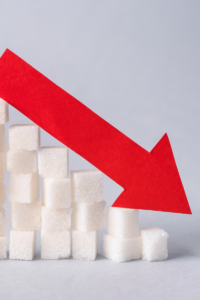
It is understood that the more food we eat, and in particular, the more processed sugary foods, the higher our insulin and leptin levels.
Doctors who prescribed insulin to type 1 diabetic patients warn them about rapid weight gain.
In a landmark 1993 Diabetes Control and Complications Trial, researchers compared a standard dose of insulin to a high dose designed to tightly control blood sugars in type 1 diabetic patients. Large insulin doses control blood sugars better. However, the participants in the high-dose group gained on average 4.5kgs more than participants in the standard dose group. Prior to the study, the participants had little obesity and weight differentiation was minimal.
Therefore, the more insulin we produce from eating foods, especially those with high sugar content, the more our resistance to the hormone, the less satiated we are, ergo, the more we eat.
If calories are restricted, energy expenditure is also restricted. Less energy equals less movement equals weight gain. That’s why calories in calories out is short-term. Eventually, the weight will return.
WHAT AND WHEN WE EAT
Now we understand that excess weight is caused by high constant levels of insulin, we can tackle the issue.
Controlling insulin is two-fold. When we eat and what we eat.
Forget about calories. Calories is a man-made unit of measurement to determine how much heat (energy) is used to raise 1 gram of water by 1 degree celsius. We are interested in lowering insulin levels because insulin is the physiological trigger of fat storage.
WHEN WE EAT
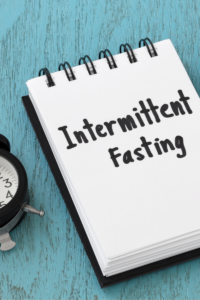
Fasting allows the body to digest foods, process nutrients and burn stored energy. To maintain a stable weight, you must balance intake and output.
Intermittent fasting such as the 16:8 approach (fast 16 hours of the day – eating window 8 hours) works perfectly for lowering insulin.
In addition to lowering insulin levels and burning stored energy, intermittent fasting has health benefits for the gut and the brain.
Example of 16:8 intermittent fasting:
9pm – Evening meal finished. Fasting starts.
6am – Awake and drink a pint of water, make a small flask of black coffee, herbal tea and a bottle of filtered water (water, herbal tea without milk and black coffee is allowed during a fast as they contain very few calories – anything under 50 calories will keep the body in a fasted state).
9am – Autophagy is switched on by the body which literally means cellular self-eating occurs. This is the body’s way of recycling and cleaning-up damaged and misfiled cells that cause inflammation.
After 12 hours, some of the fat that the body is now metabolism for energy converts to ketones leading to energy to the brain. Ketones are a more efficient fuel for the brain than glucose.
1pm – Break the fast with a low FFI based meal.
Intermittent fasting is a strategy that allows the digestive system to recover and rest. Hormones then function correctly.
WHAT WE EAT

The Food Insulin Index (FII) is a good way to check how much insulin the body releases in response to eating foods. Choosing foods with a lower FII reduces insulin demand. As we know, low insulin foods increase insulin-sensitivity which has many health benefits.
An example of 100g of steak which is around 300 calories. A 72g serving of 1 chocolate muffin is around the same amount of calories. Yet, the muffin will raise high insulin levels while the steak will generate low levels of insulin. I’ve no doubt most people could endure a second muffin, but try eating a second steak! A calorie is not a calorie. This is why a calorie control diet is not sustainable.
So, please throw away calorie restricting diet books and delete social media influencers promoting the next fad diet.
Just keep those insulin levels under control and let your body do the rest. That’s the story of hormones and weight loss.


